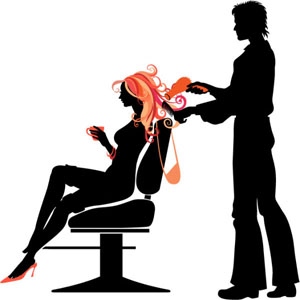I spent the five happiest years of my life in a morgue. As a forensic scientist in the Cleveland coroner’s office I analyzed gunshot residue on hands and clothing, hairs, fibers, paint, glass, DNA, blood and many other forms of trace evidence, as well as crime scenes. Now I'm a certified latent print examiner and CSI for a police department in Florida. I also write a series of forensic suspense novels, turning the day job into fiction. My books have been translated into six languages.
Wow, that’s a tough question! I’m not sure I could come up with ten.
No, we have lots of paperwork. Lots.
What is your favorite part of this job?All the interesting, different, bizarre stories that make up the crimes that have happened that we have to investigate.
What is you least favorite part of the job?Being 'on call' and knowing you can be interrupted at any moment of the day and have to go to a crime scene, even if it's the middle of the night or a holiday. I've also had to change vacations because I have to testify in a trial. I hate that.
Being around the dead is something you either get used to really quickly or you don't. The dead will not bother you, but the living can drive you crazy! And stress depends where you work. I have a great office and a relatively low-crime area, so unless we have a lot all happen at once, which is not too often, it's really not that stressful. If I lived in a more hectic place with too many demands and not enough time or resources, it might be a different story.
Sure, you can send it to: Lisa-black@live.com
School Teacher
 How do you feel about the idea of year-round schooling?
How do you feel about the idea of year-round schooling?
Hairstylist and Makeup Artist
 What's the grossest hair ailment you ever saw?
What's the grossest hair ailment you ever saw?
Certified Nurse Aide
 Is it true that STD rates in nursing homes are going through the roof?
Is it true that STD rates in nursing homes are going through the roof?
I haven’t ever done an autopsy at all, since I’m not a pathologist. They can be done on animals, usually it’s called a necropsy and may be done by a veterinarian.
That depends on the kind of forensic evidence.
That would depend a great deal on the circumstances. Any hair actually on the victim that does not appear to belong to the victim would likely be collected. If there was obviously a struggle, if the victim was beaten or strangled, hairs on their hands or caught in their fingers would warrant special attention or any clumps of hair nearby. If the victim's lying on a carpet that apparently hasn't been vacuumed for the past decade, then single hairs might be disregarded. If the person is outside and shot from a distance, then hairs would likely be disregarded.
I hope that helps!
-OR-
 Login with Facebook
Login with Facebook (max 20 characters - letters, numbers, and underscores only. Note that your username is private, and you have the option to choose an alias when asking questions or hosting a Q&A.)
(A valid e-mail address is required. Your e-mail will not be shared with anyone.)
(min 5 characters)
By checking this box, you acknowledge that you have read and agree to Jobstr.com’s Terms and Privacy Policy.
-OR-
 Register with Facebook
Register with Facebook(Don't worry: you'll be able to choose an alias when asking questions or hosting a Q&A.)